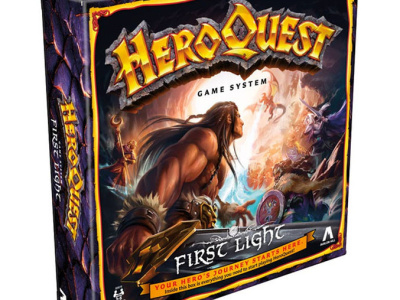International ecommerce marketplace eBay recently released a new Adult Items Policy with more restrictive limits on what could be sold on the site and how items could be promoted. The policy, confusing at times, identifies a number of products that cannot be sold on the site, including "sexually explicit anime, comics, books, animation, manga, hentai, and yaoi." Items with nudity can still be sold as long as they are not promoted on the site with nude images. There are lengthy descriptions of nudity and sexually oriented material in the new policy.
New Laws in Other Countries May Be Driving the Policy, and Singling Out LGBTQ Content.
Trexler: There's been a lot of action going around the world over the past few months. China issued a new law against "negative material on the Internet," and negative material on the internet includes sexually explicit material. India, there was a case in recent years involving potential criminal liability of the manager of an auction site which I believe, if I remember correctly, was at some point taken over by eBay. There have also been new laws and new digital actions taken in Russia.
So we're seeing a number of major companies with a lot of consumers take steps on the Internet saying that sexually explicit material, images that show certain bodily parts should be removed, and in certain instances managers of companies who allow this material to go online face the possibility of being subject to criminal penalties for allowing this material to go online.
In India, the guidelines that were just put into place in I believe February, March, earlier this year say that companies can be immune from prosecution for allowing sexually explicit material to be posted by users, by sellers if they meet certain standards for screening that material and monitoring that material and responding to complaints. There are very strict standards. If a company happens not to adhere to these standards then the managers and the directors could face criminal liability as co-conspirators, aiding and abetting in the sale of illegal material. It's a big thing that they're facing legally in a number of countries around the world.
So think that as much as anything right now shaping the decisions that are being made in the headquarters of companies such as eBay when they have a significant international market. You're facing the process of having the server shut down in many major marketplaces around the world where sexually explicit material is being presented in laws and regulations as against national unity, as against national health. It's the same way by the way that Wertham talked about this material being against social and civic health back in the 1950s. So they’re facing their servers being cut off, and in certain countries, they're facing criminal prosecution.
Which gets me to why would yaoi be targeted. Well, in certain countries there's now action against material that shows same-sex relationships.
In Russia, for example, there was a law that was passed and it's still being enforced, including in a lawsuit very recently, just a few days ago against Dolce & Gabbana, that bans material that seemed to be "propagandizing non-traditional relations." That's the actual phrase in Russian, I just translated it. You're "propagandizing non-traditional relations," and that can be taken off the web. I think why that particular genre is targeted is it's something that a number of countries around the world all of whom have consumers and very active prosecutors, this material is being targeted somehow as against the national ethos, against the law as something that could be grounds for taking material off the web or even taking sites off the web.
Corporate Social Responsibility Policies are Also Contributing to the Trend, and are the New Comics Code
Trexler: CSR [Corporate Social Responsibility, ed.] policies in companies is something that now is integrated across the board and particularly in Silicon Valley companies, where this is a huge, huge matter. CSR ends up becoming the norm in companies nationwide, worldwide. It talks about why certain material, it's not censorship from the standpoint of the code, it's about education, it's about progress, it's about health. It's about moving forward as a people and as individuals, as a genre. This is a very progress-oriented type of thing.
If you get at the end of the Comics Code in 1954, you'll see it says they hope that this Comics Code will end up being a model of self-regulation for all communications media. That's the other story that we can tell with the Comics Code and that from that standpoint, the Comics Code won. The Comics Code seal itself became superfluous because people started seeing that as a sign of the 1950s, juvenile. It was also a sign when companies weren't doing the sort of thing that they're doing now, or at least to the same degree.
You didn't have a culture where every company of any size in the United States in communications, media and technology, all around anything having to do with information had this ethos of responsibility. Now every company has that. It's talked about from on-boarding, from the moment you sign up with a company, you get multiple trainings. There are corporate social responsibility reports. There are responsibility standards to determine where this is sold, how it's sold, how it's branded. You don't need the Comics Code to do that for you when you're doing it yourself. Every company has its own approach to it that fits within its own brand.
Algorithmic Censorship Is the New Battleground
Trexler: I've been speaking since I've come on board as interim director of the problem of algorithmic censorship, and algorithmic content moderation as one of our next big battlefields and we see it here. We're at a point where people are trying to sell the material and they're going to be screened as soon as they post it, and it's entirely possible that a human being won't see it because they are various rules in place to keep them from getting this material posted and letting other people buy it. When we see what's happening, we realized that it's the Comics Code 2.0 and that the future of the Comics Code is digital.
The battle before us now is not 1954. The battle before us now is 2021, it's 2030, it's 2040 and it's a battle in which you have government and very large information technology companies in the commerce space, in the social media space, and the payment space, coming up with standards that you don't have to go through some blue-hair sitting in an office somewhere scrutinizing pages and having you paste over or redraw the art, you're dealing with algorithms that can keep most of the material from ever being seen.
If you talk to people in information technology at the leading social media companies in the world about the algorithms, they will freely admit that the algorithms are stupid, the algorithms are dumb, and so you program something like these rules in and you're going to get a lot of stuff shut down. That's what we're responding to, this new environment. Government, information technology companies in payments, commerce, content distribution are doing the same thing that the Comics Code did, but doing it even faster and on a greater scale than before.
The CBLDF Will Be Defending Against These Trends
Trexler: As always when we have this kind of attempt to regulate speech the CBLDF is going to be defending the freedom of creators to express themselves through their art, and the freedom of people to sell that art for others to read. We are, as we always have been, committed to free speech and the expression of that speech in comics… If we're going to have commerce, if we're going to have shops that are open to all and are going to be the most dominant shops in the world then people should feel free to express themselves and sell the material they want to sell on that shop.
I want to hear what people have to say about this; it's definitely at the center of what we’ve got to do because we have to figure this out. In terms of free expression and free speech, this is a challenge the likes of which we have never seen.









